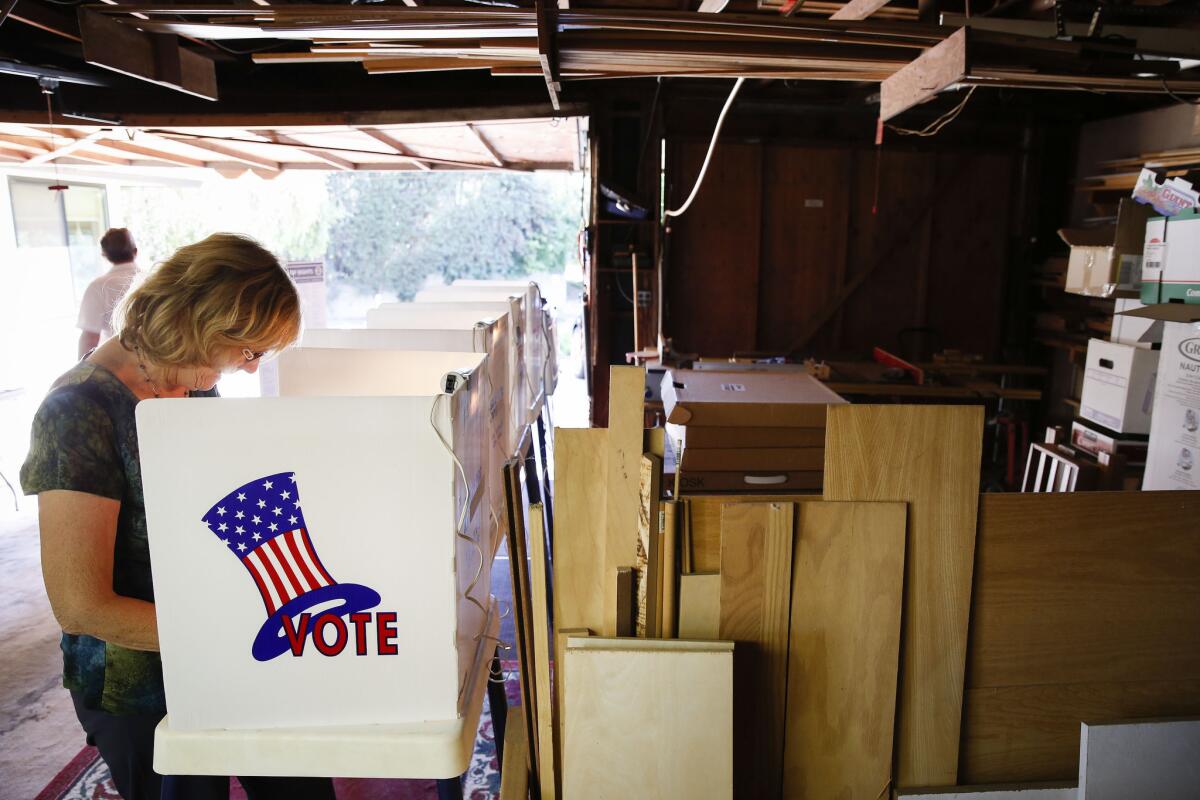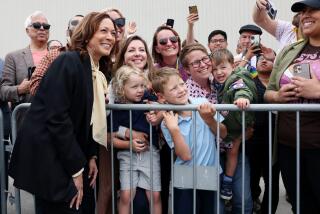Analysis: Poor California primary turnout explained: Contented people stay home

The cause of California’s embarrassingly low voter turnout Tuesday can be easily summarized by a simple equation: Relative contentment + a sense of predestined outcome = little incentive to vote.
Voters come in many shades and flavors. Some are civic-minded and see their ballot as sacred, freighted with both privilege and responsibility. They make it a point to vote in every election -- rain, shine, blowout or nail-biter.
But many more people take only a passing interest in politics and the summons every two years or so to the polls. For the more casual voter, turning out on election day, or dropping a ballot in the mail, requires some greater incentive beyond a sense of duty. It may be inspirational: a candidate breaking down historic barriers of race, gender or ethnicity. It may be practical: a ballot measure that directly affects his or her personal life or pocketbook.
Often, though, it’s a boiling anger and spleen-venting desire for change.
In 1994, Gov. Pete Wilson surged to reelection by riding a disgruntled wave stoked by a campaign targeting the state’s large, much-resented population of illegal immigrants. (A classically Pyrrhic victory, as it turned out, hurting Republicans among Latino voters to this day.)
More than 6 in 10 of Californians turned out for that bitterly fought election, a record that has yet to be surpassed. (Just over 6 in 10 voters turned out for the 2003 recall election, an unprecedented spectacle and electoral auto-da-fé that ousted Democrat Gray Davis and ushered movie star Republican Arnold Schwarzenegger into office.)
Today, there is none of that molten rage. There are, of course, plenty of discontented Californians, who haven’t already picked up and moved to Texas. But repeated surveys show that, in the main, Californians are relatively happy. Times aren’t great, they say, but they’re better than a few years ago and seem headed in the right direction. Many of them credit Democratic Gov. Jerry Brown for the improvement -- some Republicans, even, which adds to the air of inevitability surrounding his reelection.
The Grand Old Party, in turn, is in desperate shape in California. The Republican share of the state electorate continues to slide and the party label has acquired such toxicity that, in many environs, GOP translates directly to DOA. Some party faithful have simply given up, either embracing Brown as a lesser of evils or surrendering any hopes of seeing a Republican elected governor any time soon.
None of that is to say the outcome in November is preordained, or that anyone should be discouraged from voting, ever.
It does suggest, though, that “stay mellow” may be a good personal mantra but not a great political call to arms.
More to Read
Sign up for Essential California
The most important California stories and recommendations in your inbox every morning.
You may occasionally receive promotional content from the Los Angeles Times.











